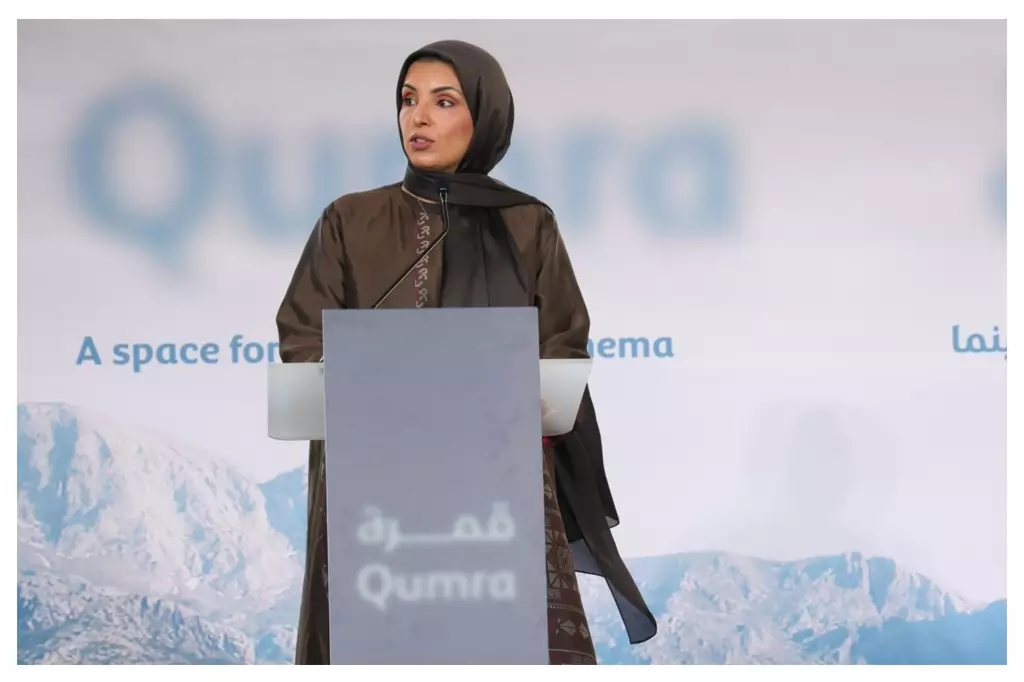The annual meeting of the Doha Film Institute (DFI) brought together creative minds from around the globe as the world witnessed heightened tensions in the Israel-Palestine conflict. With over 300 attendees converging at the Museum of Islamic Art, the atmosphere buzzed with a shared commitment to storytelling and the arts. Yet, underlying this artistic camaraderie were serious issues echoing in the background—an increasing wave of violence against Palestinians and an alarming attempt to silence their voices. The events in Gaza have underscored the urgency that lies within the realm of creative expression, making the DFI’s gathering both timely and profoundly significant.
Voicing Concerns: A Call to Action
Fatma Al Remaihi, the CEO of DFI, seized the opportunity to highlight the necessity of preserving narratives from the region. Her remarks featured an evocative invocation of the suffering endured by communities such as those represented by acclaimed Palestinian filmmaker Hamdan Ballal. Ballal’s Oscar-winning documentary, which poignantly addresses the plight of West Bank villagers, raises crucial questions about the role of art amidst oppression. Al Remaihi did not shy away from urging her peers, emphasizing that artistic spaces like the DFI’s Qumra program are essential havens for storytelling during a time when silence often reigns supreme among powerful voices in the global arena.
In her resolute stance, she articulated that the artistic community bears the responsibility of confronting injustice, reinforcing the idea that storytelling is inherently intertwined with the struggle for humanity itself. “We must stand firm in our duty as storytellers and ambassadors for humanity,” she insisted. This declaration resonates strongly within the context of the ongoing disengagement and violence perpetrated against Palestinians, where expressing dissenting voices could lead to severe repercussions. Al Remaihi’s impassioned speech serves as a rallying cry for all creatives to embrace their role as advocates for change.
Cinema as a Tool for Resistance
The historical context surrounding the meeting is steeped in tragedy. Since Israel’s resumption of military operations in Gaza earlier this year, reports indicate a staggering loss of life, with the death toll exceeding 50,000 and countless families torn apart and displaced. Such circumstances forge an indelible connection between the art community’s mission and the stark realities faced by those depicted in their work. It reinforces the idea that cinema serves not merely as entertainment but as a potential mechanism for social consciousness and advocacy.
In this regard, the cinematic voice assumes a critical role. Artistic expressions have the power to illuminate brutal truths and foster empathy in audiences who might otherwise overlook or misunderstand the complexities of conflict. Al Remaihi’s assertion that cinema is the “last remaining tool we have for positive change” mirrors the sentiments of many contemporary artists who view their craft as a form of resistance against overwhelming odds. The urgent need for artistic intervention is a clarion call to creators everywhere to unearth the untold stories of suffering and resilience that are desperate for attention.
The Dangers of Implicit Silence
What is particularly alarming are the ramifications of systemic silence surrounding such narratives within influential platforms, including Hollywood. Just days before the DFI’s gathering, the Academy of Motion Picture Arts and Sciences faced backlash for failing to acknowledge Ballal following his assault and subsequent detention. This neglect does not happen in a vacuum; it reflects a broader trend in which cultural institutions choose to prioritize silence over solidarity. By sidelining those voices that challenge the status quo, they not only exacerbate the dangers faced by creative figures like Ballal but also contribute to the erasure of critical perspectives that could cultivate understanding.
Thus, spaces like Qumra become essential not only for artistic development but also as platforms dedicated to those whose stories have often gone unheard. This initiative represents more than just a festival; it embodies a defiance against oppression. It offers a curated environment for filmmakers and creatives from diverse backgrounds to exchange ideas and strategize the impactful sharing of their narratives, empowering them to foster global conversations around difficult issues.
In these turbulent times, as the world grapples with persistent violence and societal dehumanization, the arts have never held greater significance. The staunch resolve displayed by the DFI serves as a testament to the resilience of creative spirit and its unwavering commitment to safeguarding voices that challenge, resist and question the dynamics at play in our world today.

Leave a Reply